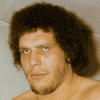I used to be here on GameDev.net all the time, about 10 years ago (!) asking programming and algorithm questions, with the goal of creating some sort of game. Fast forward to today - Ive got my undergrad and masters in computer science, and I've been a professional programmer for over 6 years (non game dev job though). So I got back into game dev as a hobby, and I'm finding that I can now program anything and everything I could possibly dream up with no problem (yay!). However to my horror I'm realizing I don't know how to make a game FUN!
Ive got a good start to a game that I could best describe as a Gauntlet clone. (Gauntlet II for NES is the one I have in mind while developing)
You run around randomly generated dungeons, shooting and avoiding enemies, grabbing health and powerups, trying to advance deeper and deeper into the dungeon.
Lots of the game is already built, however ITS NOT FUN. I don't enjoy playing it or testing it, and I cant figure out whats not fun about it. I dont know how to fix it to make it enjoyable to play.
Its very similar to Gauntlet - actually I would argue its better in many ways: the dungeons are random instead of canned. Also the dungeons are much larter and more interesting (IMHO).There are more enemy types and more of them can be active/on screen at a time. There are more weapons, and the graphics are better.
But for some reason the original Gauntlet is a much more fun game. I suspect it has something to do with the fact that my game is not balanced yet - its way too easy at this point. However Ive tried jacking up the HP of the enemies, making them faster, and making them do more damage, as a quick fix to make it harder. This does make the game harder but its still missing that addictive fun factor that I really need.
I realize this is a tough question given that you havn't played or even seen my game... unfortunately I'm not ready to have strangers look at it just yet ![]() I guess I'm just really hoping someone can come up with some good ideas / advice just from the text in this post.
I guess I'm just really hoping someone can come up with some good ideas / advice just from the text in this post.
Thanks!








